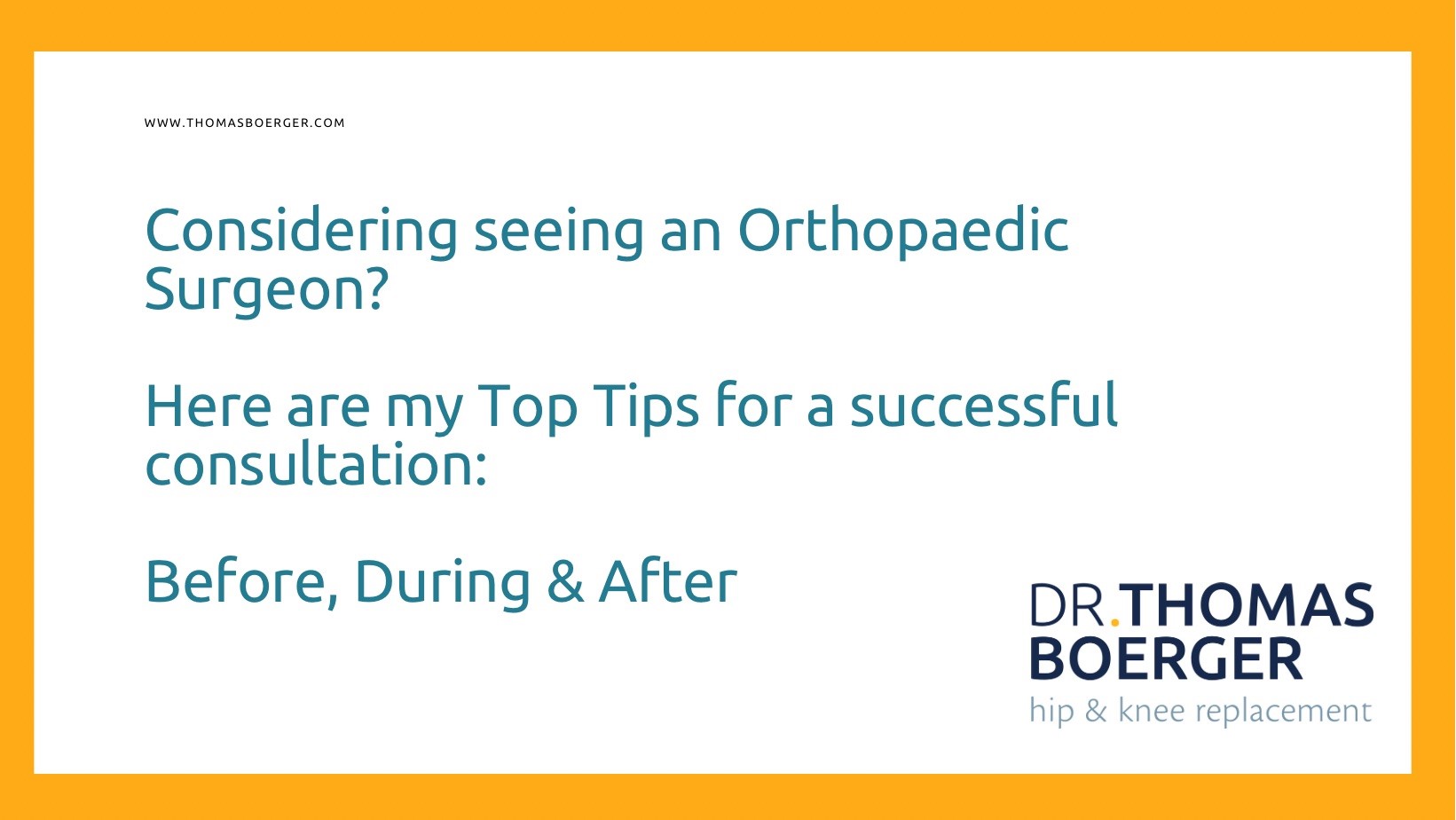
So, you’re about to book a consultation with an Orthopaedic Surgeon….
This is my advice on what you should expect, and how to make the most of the consultation.
Before making and attending the appointment:
Identify a good Orthopaedic Surgeon by speaking to your primary care doctor, family and friends. Make sure that the Orthopaedic Surgeon’s specialty areas are relevant to your needs. Familiarise yourself with the Surgeon’s professional training and clinical experience. Find out as much as you can about the Surgeon’s practice set-up. Be as clear and specific about what you wish to know and hope to achieve by engaging with the Orthopaedic Surgeon.
During the first consultation:
Above all else, from the outset, the Orthopaedic Surgeon you see should be professional, caring and interested in you as a person, not just a patient. The initial interview with you should be comprehensive and you should feel free to tell your story. You should expect a thorough examination of all relevant physical systems. Based on the medical history information you will have been asked to share, you should in some cases be referred to other physicians (such as a Cardiologist or Haematologist) within the same specialist team for further assessment.
Your personal circumstances permitting, you can expect to have high quality radio-images such as joint X-rays taken there and then. The images should then be available to your Orthopaedic Surgeon to be able to view them with you directly and explain the findings to you clearly. He/she should also, by then, have sufficient clinical information to be able to explore a range of management options, from conservative to surgical treatment plans, and be in a position to counsel you adequately on everything each option entails.
After the consultation:
You are now in possession of multiple options. You should have some initial understanding of what has been recommended. You should be given further opportunities to ask more questions, including those of your surgeon’s specific professional experience with any specific operative procedure on offer. As a minimum standard, your Orthopaedic Surgeon who has offered you joint replacement surgery should be fellowship-trained in Arthroplasty (joint replacement surgery) in reputable clinical centres of excellence, and should have a specialised expertise in the procedure recommended to you.
If you have carefully considered and now wish to proceed with joint replacement surgery, you should be given an explanation of what happens next, starting with any tests to be completed before surgery in order to plan the surgery, the type of implant chosen for you, the projected life-span of the implant, the preferred mode of anaesthesia, other relevant aspects of post-surgery rehabilitation time frame, expected and managed outcome and any associated follow-up schedules. There must be an open and full discussion about potential risks and complications of the specific type of surgical option, along with information about any relevant alternatives to the proposed procedure.
Most importantly, you should never be rushed or feel pressured into any decision. Your Orthopaedic Surgeon should offer you another appointment to discuss any queries you may have, if you wish. You should also receive a comprehensive letter/report from you Orthopaedic Surgeon soon after this first consultation which allows you a review of your clinic experience and a reminder of management recommendations.